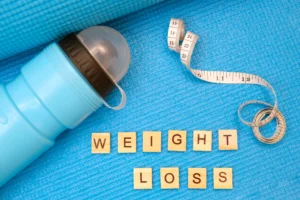Remember when hitting 65 meant slowing down? Those days are long gone!
Today’s seniors are rewriting aging rules, and your heart deserves to keep up with your vibrant lifestyle.
Let’s explore the latest approaches to heart health in geriatrics that go beyond the usual “eat less salt” advice (though that’s still important!).
Understanding Your Ever-Young Heart
The Magnificent Marathon Runner
Think of your heart as a marathon runner who’s been training for 65+ years.
By now, it’s pumped enough blood to fill several Olympic-sized swimming pools.

A healthy heart in the elderly is important.
That’s quite a track record! But like any seasoned athlete, it needs specialized care to keep performing at its best.
Why Age Is Just a Number for Your Heart
Here’s something fascinating: your heart’s potential doesn’t diminish just because you’ve celebrated more birthdays. Research shows that hearts can actually continue to strengthen well into your 80s and beyond. It’s less about how many candles are on your cake and more about how you’re treating this remarkable organ.
The Latest Guidelines: What’s New in Heart Health
Blood Pressure: The New Numbers Game
Remember when 140/90 was the magic number for blood pressure? The latest guidelines suggest aiming for 130/80 or lower for optimal heart health. But here’s the twist – it’s not just about the numbers anymore. We now know that blood pressure fluctuates naturally throughout the day, like a dynamic dance rather than a fixed state.
Cholesterol: Beyond the Good and Bad
Gone are the days when we simply divided cholesterol into “good” and “bad” categories. The latest research shows that the relationship between cholesterol and heart health is more like a complex family tree than a simple divide. Some forms of “bad” cholesterol are worse than others, and the timing of meals can affect how your body processes cholesterol.
Movement Medicine: The Joy of Staying Active
The 10-Minute Revolution
Forget the old rule about needing 30 continuous minutes of exercise. New research celebrates the power of “exercise snacking” – short bursts of activity throughout the day. Think of it as treating your heart to several mini-adventures rather than one long journey.
Finding Your Heart’s Happy Place
The best exercise isn’t necessarily the most intense – it’s the one that brings you joy. Whether it’s water aerobics, gardening, or dancing in your kitchen, your heart responds best to activities that make you smile. The stress-reducing benefits of enjoyable exercise actually multiply its heart-healthy effects.
Nutrition: The New Science of Heart-Healthy Eating
Timing Is Everything
Did you know your heart has its own preferred dining schedule? Recent studies suggest that when you eat might be almost as important as what you eat. Your heart’s cells follow a circadian rhythm, just like you do, and they process nutrients differently throughout the day.
The Rainbow Connection
Instead of focusing on what to eliminate, let’s talk about what to add. Think of your plate as an artist’s palette – the more colors you include, the more heart-protective compounds you’re getting. Purple cabbage, orange sweet potatoes, red berries – each color brings its own special heart-loving nutrients to the table.
Sleep: Your Heart’s Secret Weapon
The Restoration Hours
During sleep, your heart gets its own version of a spa treatment. This is when it repairs, rebuilds, and rejuvenates. New research suggests that consistent sleep patterns might be even more important than total hours of sleep for heart health.
The Power of the Power Nap
Short afternoon naps (15-30 minutes) have been shown to reduce cardiovascular stress and improve heart function. Think of it as giving your heart a mini-vacation in the middle of the day. Just be sure to set an alarm – longer naps can interfere with nighttime sleep.
Social Connections: The Heart’s Emotional Workout
The friendship Factor
Here’s something cardiologists are paying more attention to: social connections can be as important for heart health as diet and exercise. Regular social interaction helps regulate stress hormones and blood pressure. It’s like your heart is happiest when you’re surrounded by friends!
The Gratitude Effect
Practicing gratitude isn’t just good for your mood – it actually creates measurable improvements in heart health markers. Taking time each day to appreciate life’s gifts can lower blood pressure and reduce inflammation.
Technology: Your Heart’s New Best Friend
Smart Monitoring Made Simple
Today’s technology makes it easier than ever to track your heart health. From smartwatches that monitor heart rhythm to apps that track medication schedules, these tools can help you and your healthcare team make better decisions about your heart health.
Telemedicine: The New House Call
Virtual healthcare visits have revolutionized heart health management. Regular check-ins with your healthcare team can now happen from the comfort of your favorite chair, making it easier to stay on top of your heart health goals.
Prevention: Small Steps, Big Impact
The Power of Routine
Creating heart-healthy habits doesn’t have to mean massive life changes. Small, consistent actions add up to significant benefits over time. Think of it as compound interest for your heart – little investments now pay big dividends later.
Stress Management: Your Heart’s Shield
Chronic stress is like rust for your heart – it slowly wears things down. But here’s the good news: simple stress-management techniques like deep breathing, gentle stretching, or even petting a cat can help protect your heart from stress’s effects.
Your heart has been your faithful companion for over six decades, and it’s ready to support you through many more adventures. By embracing these latest guidelines and prevention strategies, you’re not just protecting your heart – you’re giving it the tools it needs to help you live life to the fullest.
Remember, it’s never too late to make heart-healthy changes. Every beat is a new opportunity to strengthen this remarkable organ that’s been with you since before your first breath. Here’s to keeping your heart young, no matter what your age!




